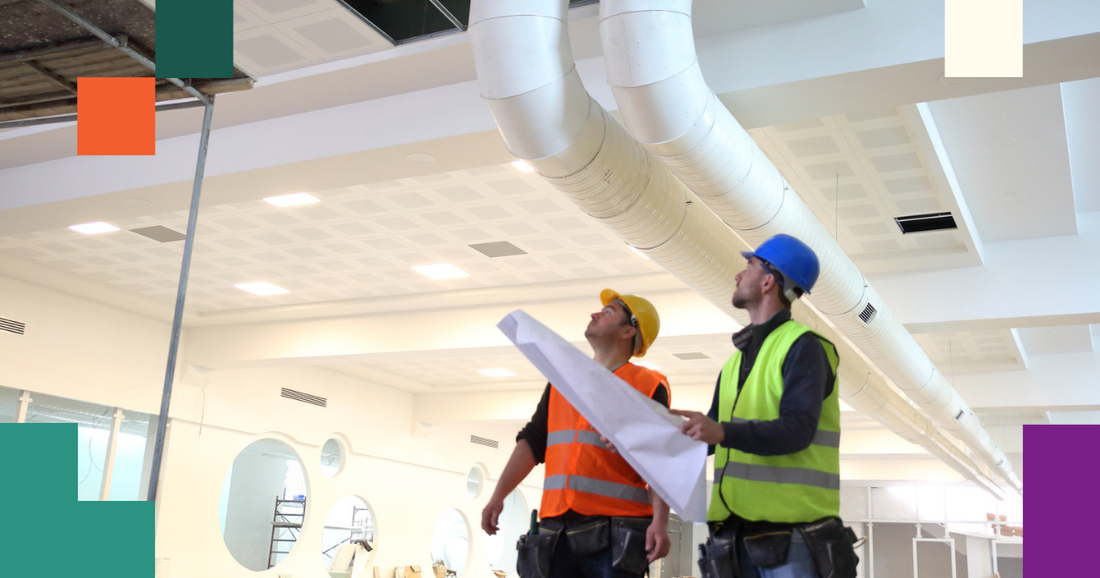Quality control – is the basis of the success of any construction project, impacting all phases of construction.

This goes hand in hand with cost control, safety improvements and better project results. Unfortunately, construction quality control presents many challenges. Let's explore these challenges and how you can overcome them in your organization.
1. Lack of training and standardized processes
It's no secret that there is a lack of qualified workers in the trade at the moment, which presents many problems in the industry. You cannot have quality without qualified labor.
This means more than having a team of trained professionals; you must assign the right workers to the right tasks and ensure that site supervisors clearly understand the project's quality expectations.
Give your foreman the authority to train and manage contractors and subcontractors in a way that encourages them to meet these quality expectations.
Before you even start work, make sure the entire team understands the quality requirements – holding a pre-construction meeting to discuss the project not only has safety benefits, but it's also the best time to establish some ground rules; for example, that you will not tolerate or accept poor quality.
Establish high-quality standards from the beginning, provide necessary training before starting work, and encourage each person to take pride in their tasks.
2. Inconsistent communication between stakeholders
There is no better pair than quality control and communication. If you don't have a consistent and effective way for stakeholders to communicate about compliance, expectations, policies and security, quality control will become a never-ending process.
Not to mention the cost pressures that can result from miscommunication regarding change orders.
You need to make QA part of every discussion about project expectations and involve everyone from project managers to surrogates to ensure everyone knows what you expect of them.
Determine the frequency of communications, what should be communicated and how everyone involved will stay in touch – as with a digital communications platform.
You can use construction communications software to connect everyone and ensure better quality control processes with real-time collaboration that reduces errors and misunderstandings.
3. Inadequate documentation
Poor document management greatly harms the quality of a project, leading to defects, delays, rework and overruns. In fact, inadequate documentation costs construction companies tens of billions annually in the US alone.
In addition to wasted labor time and communication delays, one way poor documentation practices affect quality control in construction is by slowing responses to change orders.
Almost all projects will have multiple change requests during design and construction – there is no efficient way to keep track of all of these requests with manual processes. Even a small delay can lead to significant quality issues, rework and waste.
To combat this, you want your documentation practices to:
- Ensure each document is easily searchable
- Store documents in a way that is accessible to all interested parties
- Include everything (projects, contracts, RFIs, punch lists, etc.)
- Keep access open throughout the project, from start to finish
The most important part, however, is having all your project documents in a centralized control system. Managing your documents with a digital construction tool leads to better quality control, project results, and collaboration.
Best practices for quality control in construction
While your QA processes may look a little different for each project, there are some best practices you can always follow to ensure better quality:
- Use a quality assurance checklist to ensure a complete and accurate inspection. Distribute a backlog to the team and hold pre-task discussions about project expectations.
- Create a site inspection plan to verify that it meets project quality acceptance standards. Put someone in charge of this inspection plan and hold them accountable.
- Set quality expectations up front to keep everyone on the same page. Discuss coding standards, client expectations, and how to complete the project without errors.
- Follow safety and compliance requirements to ensure proper work. For example, fatigued employees who skip breaks are more likely to make mistakes.
- Review and review quality inspection results to ensure issues do not recur. Discuss what happened and how to prevent the same problem from happening again.
Take control of your construction quality control processes
Technology in our industry is changing rapidly and we need to adopt new solutions to improve our existing quality control processes.
Digital applications and platforms can contribute greatly to improving construction quality control, increasing productivity and efficiency.
With the right tools, you can address these common quality control challenges and implement processes to ensure all your projects meet your quality standards.

